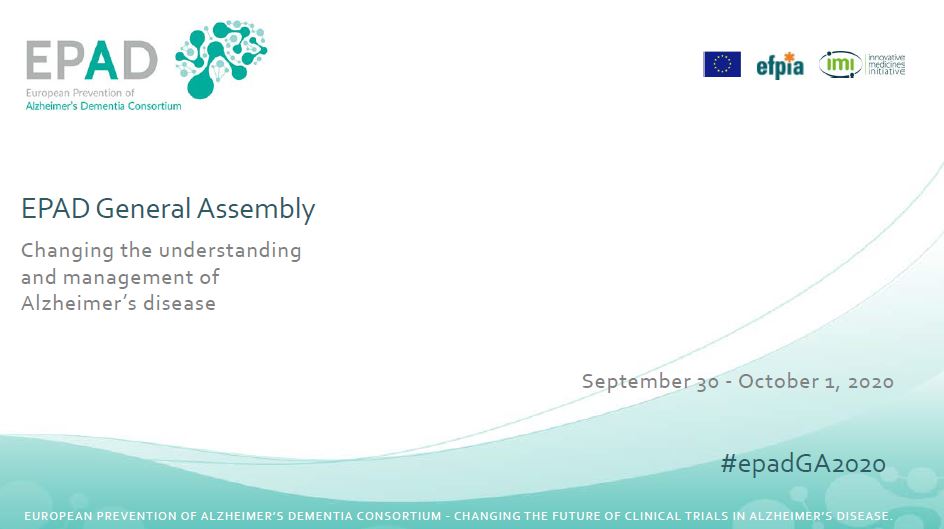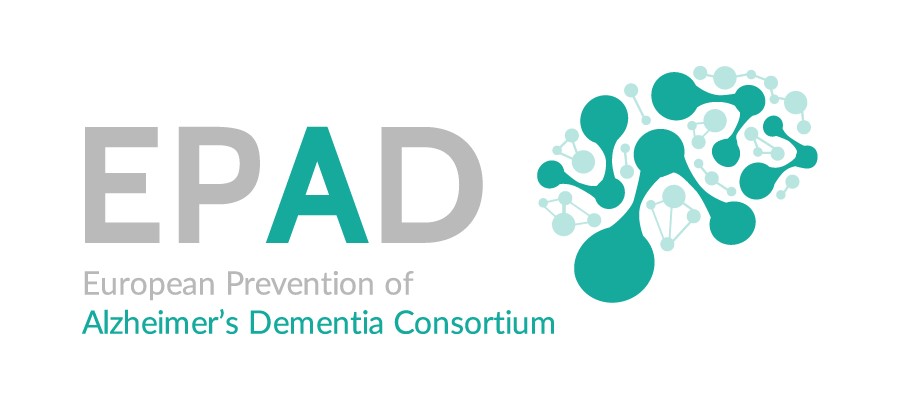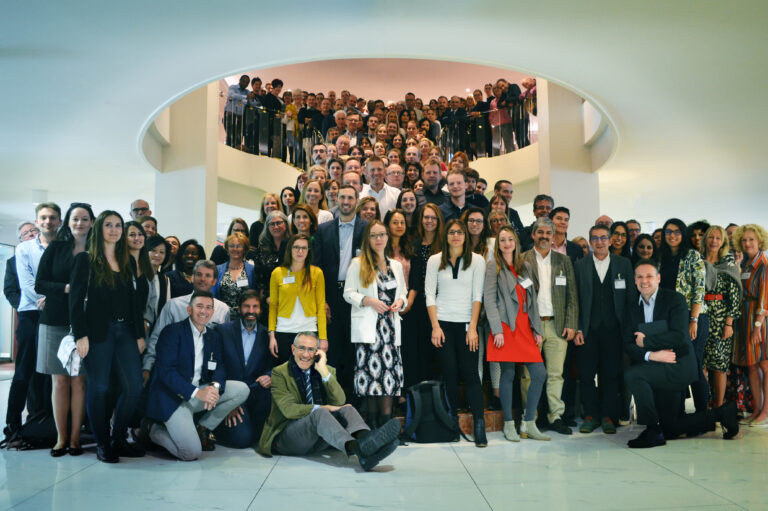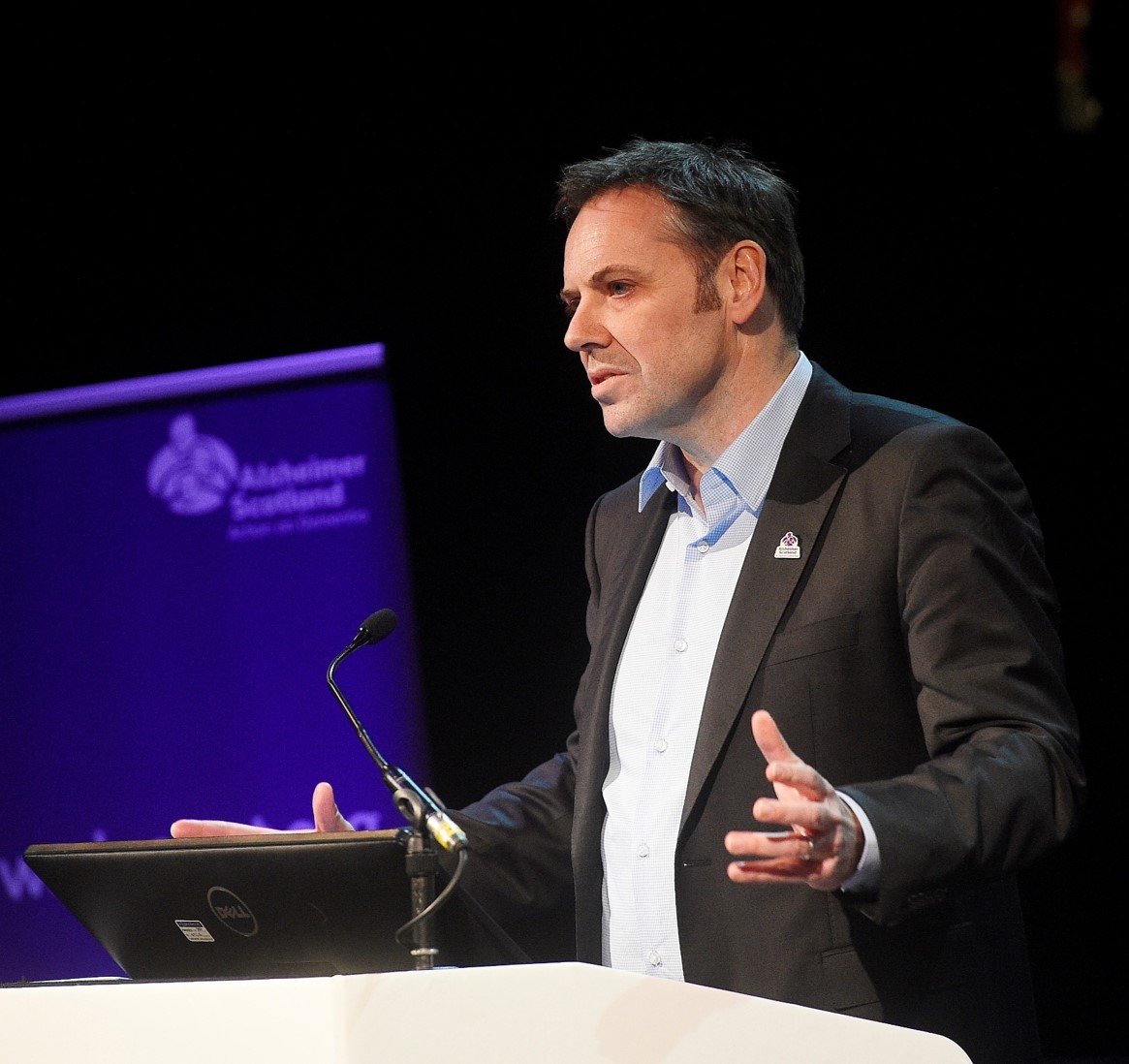On 30 September and 1 October, the European Prevention of Alzheimer’s Dementia (EPAD) project held its General Assembly meeting online. Chaired by Craig Ritchie and Serge Van der Geyten, the EPAD project coordinators, the online GA meeting welcomed over 100 delegates, including representatives from the 39 institutions and organisations that make up the EPAD consortium. Leaders of each work package had the opportunity to reflect on the achievements and important lessons learned for future studies. Between some of the talks, a testimonial was given by several epadistas (members of the project, study sites members and research participants making up the EPAD family). Following the Work Package updates, Elisabetta Vaudano IMI Principal Scientific Officer, gave a presentation on IMI and shared some recommendations.
Craig Ritchie started the second day with an update on the EPAD asset portfolio. Next, a series of fireside chats took place. The aim of this session was to discuss a series of key topics that the clinical and clinical research field has been grappling with over the years with much work still to be done. 20 leaders in the field were invited to join the discussion with an emphasis on how we can learn in each topic from the past to help envisage the future direction. Before the wrap-up session, the IMI NEURONET project was presented along with the opportunities for EPAD. Craig Ritchie and Serge Van der Geyten then drew the meeting to a close, thanking all the participants for their active contribution to the meeting and all EPAD members for their enthusiasm and dedication during the last six years. The project started in January 2015 and received a no-cost extension from IMI, setting the end date in June 2020 for many members and October 2020 for all who were part of the longitudinal cohort study closure activities.









